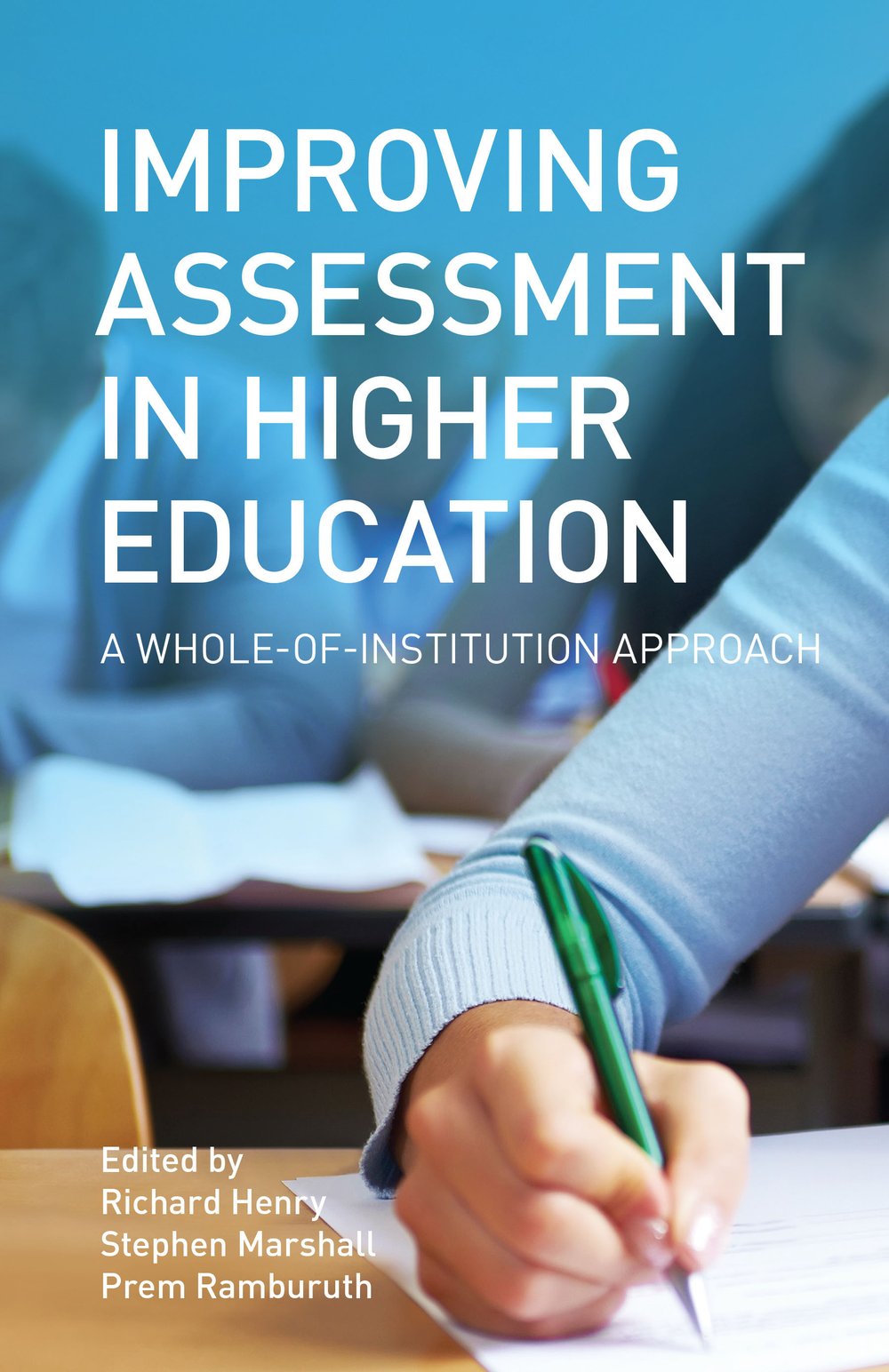When the leadership group at the University of New South Wales decided that the university could provide better assessment for students with less academic time and effort, a major three-year project was launched. Its results across all the university’s faculties are detailed in Improving Assessment in Higher Education, edited by Richard Henry, Stephen Marshall and Prem Ramburuth.
The university sector around the world is facing significant challenges. Political, cultural, economic and technological factors have created an environment that requires each university to rethink strategic directions at many levels, including how the institution is managed, how teaching is delivered, where sustainable funding sources can be found and what strategies will ensure the quality of the student experience. In Australia, the regulatory burden imposed by bodies such as the Tertiary Education Quality Standards Agency (TEQSA) is pervasive. The key decisions that universities such as UNSW need to make require them to recognise which external factors are fundamental to the future of research and education, and which factors are simply a distraction.
The feedback from UNSW students about their courses made it clear that students’ satisfaction with their overall degree program was affected greatly by the quality of assessment, and by the feedback they received. From a staff perspective, the assessment of student work and providing feedback were major contributors to academic workload. The leadership group at UNSW discussed and reviewed a sample of current practices, and determined that there was a substantial opportunity to provide better assessment with less academic time and effort.
Improving Assessment in Higher Education documents the progress made at UNSW in improving the efficiency and effectiveness of assessment. It was a whole-of-institution, multi-focal, contingent approach conducted over three years, with a strong evidence base. The narrative is about the journey and the destination; about what was done and what was achieved.
Each faculty provides a case study, buttressed by the central strategy and implementation. Any changes made to assessment needed to be evidence-based, so each faculty began by conducting some kind of audit or mapping of their curricula processes. In most cases the audits were undertaken by, or advised by, an external consultant recruited for the project. This provided local meaning and helped to extinguish any suggestion that the project was a centrally imposed exercise to reform assessment. Although there was staff support for improving the effectiveness of assessment but resistance to improving its efficiency, in practice the exercise resulted in significant benefits in both aspects.
Many universities around the world have taken on major projects attempting to achieve better teaching at lower cost. Improving Assessment in Higher Education provides important insights into the local factors that need to be taken into account in order to achieve institutional change, and teases out issues that can be generalised to other contexts. There are important messages for senior administrators, for middle managers and for individual academic staff.
Improving Assessment in Higher Education: A whole-of-institution approach, edited by Richard Henry, Stephen Marshall and Prem Ramburuth, is published by UNSW Press for release in December 2013.
